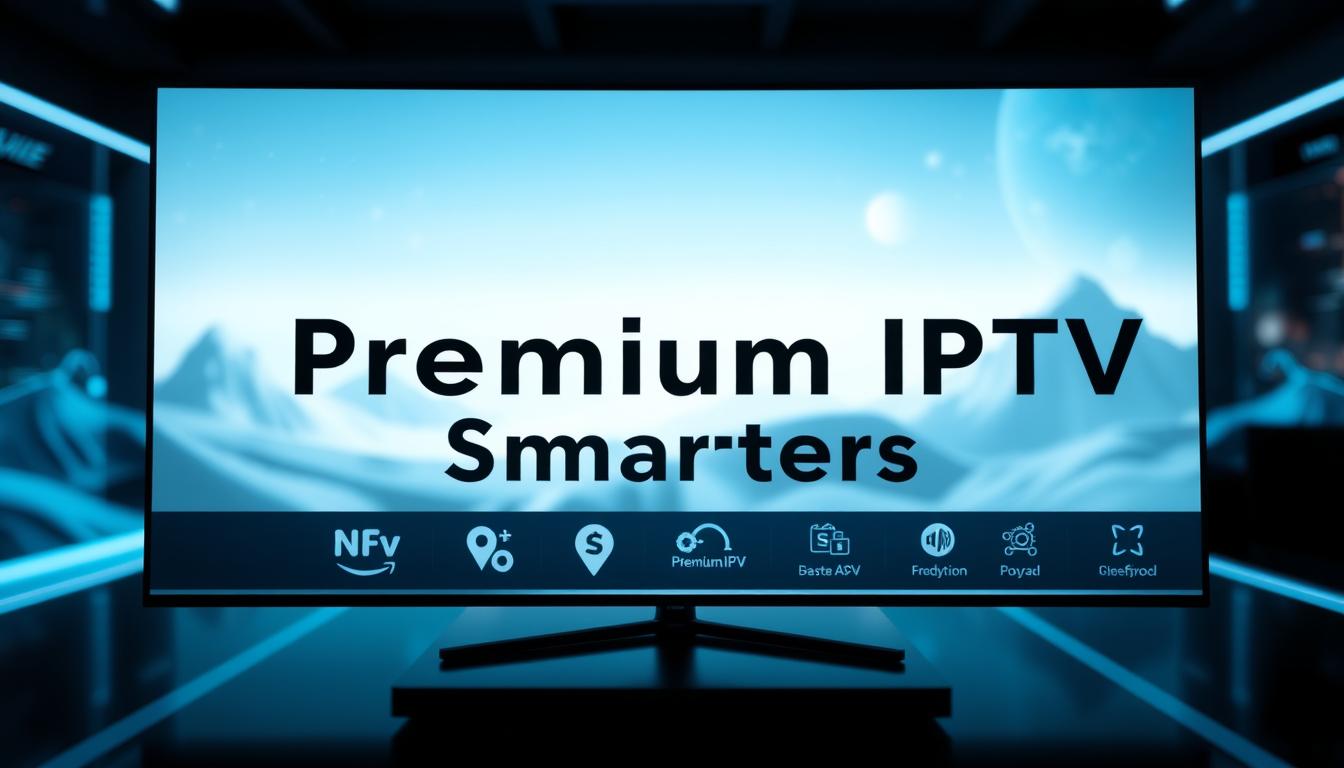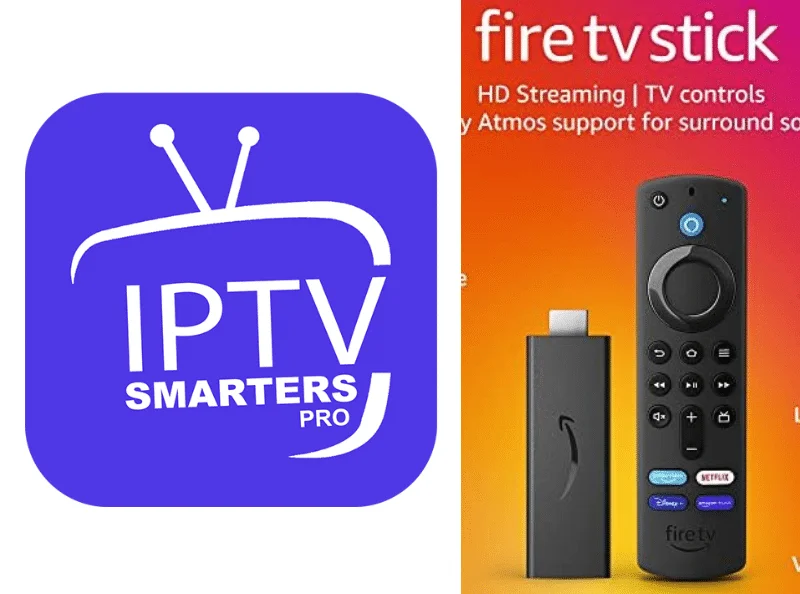The way we consume television is changing, and Internet Television is at the forefront of this revolution. IPTV, or Internet Protocol Television, allows users to stream television content over the internet, providing a flexible and often more affordable alternative to traditional cable or satellite TV.
For first-time streamers, the world of IPTV can be both exciting and overwhelming. With numerous services available, it’s essential to understand the basics of IPTV and what it has to offer. Streaming TV services have become increasingly popular, offering a range of channels, on-demand content, and the ability to watch on various devices.
Key Takeaways
- IPTV offers a flexible alternative to traditional TV viewing.
- Internet Television provides access to a wide range of channels and on-demand content.
- First-time streamers should consider their viewing habits before choosing an IPTV service.
- Streaming TV services are available on various devices, enhancing viewer convenience.
- Understanding the different types of IPTV services is crucial for making an informed decision.
What Is IPTV and How Does It Work?
IPTV stands for Internet Protocol Television, a technology that’s changing the television landscape. It’s a streaming service that allows users to access television content over the internet, providing a more flexible and personalized viewing experience.
Understanding Internet Protocol Television
Internet Protocol Television delivers on-demand video content, enabling users to watch their favorite shows and movies at any time. This is a significant departure from traditional linear TV, where viewers are tied to a broadcast schedule.
The Technology Behind IPTV
The technology behind IPTV involves streaming media over the internet protocol (IP) network. This allows for a more efficient and scalable delivery of content compared to traditional broadcast methods. IPTV services can be delivered through various devices, including smart TVs, smartphones, and computers, making it a versatile option for modern viewers.
The Benefits of Using IPTV Services
IPTV services have revolutionized the way we consume television, offering a range of benefits that traditional TV cannot match. One of the primary advantages is the flexibility and control it offers viewers.
On-Demand Content Access
With IPTV, users have access to a vast library of on-demand content, including movies, TV shows, and documentaries. This allows viewers to watch their favorite programs at a time that suits them, rather than adhering to a traditional broadcast schedule.
Multi-Device Streaming Capabilities
IPTV services enable streaming across multiple devices, including smartphones, tablets, smart TVs, and computers. This multi-device support means that users can enjoy their favorite content anywhere, at any time.
Cost-Effectiveness Compared to Cable
IPTV is often more cost-effective than traditional cable TV. By providing a range of channel packages and on-demand content, IPTV services allow users to tailor their viewing experience to their budget.
| Feature | IPTV | Traditional Cable |
| On-Demand Content | Available | Limited |
| Multi-Device Support | Yes | No |
| Cost | Variable, often lower | Generally higher |
Popular IPTV Content and Channels
IPTV services have revolutionized the way we consume television, offering a wide range of content that caters to diverse viewer preferences. This versatility is one of the key advantages of using a smart TV with IPTV capabilities.
Live TV Streaming Options
IPTV provides users with the ability to stream live TV, ensuring they never miss their favorite shows or events. This feature is particularly appealing to sports enthusiasts and news junkies alike.
Sports and Entertainment Packages
Many IPTV streaming services offer specialized sports and entertainment packages, giving users access to premium content. These packages often include exclusive channels that are not available through traditional TV services.
International and Specialty Programming
One of the standout features of IPTV is its ability to offer international and specialty programming. This is particularly beneficial for expatriates or those interested in global content, as it allows them to stay connected to their cultural heritage.
| Content Type | Description | Benefit |
| Live TV | Real-time streaming of TV channels | Never miss your favorite shows or events |
| Sports Packages | Exclusive sports content and channels | Access to premium sports events |
| International Programming | Global content from various countries | Stay connected to your cultural heritage |
By leveraging the capabilities of IPTV on a smart TV, users can enjoy a more personalized and flexible viewing experience. Whether you’re a fan of live TV, sports, or international content, there’s a premium IPTV service that can meet your needs.
IPTV vs. Other Streaming Services
With numerous streaming services available, comparing IPTV to its competitors can help you make an informed decision. IPTV, or Internet Protocol Television, offers a unique approach to streaming TV by using internet protocols to deliver television content. This section will explore how IPTV stacks up against other popular streaming services and traditional TV options.
IPTV Compared to Netflix, Hulu, and Disney+
Unlike on-demand services like Netflix, Hulu, and Disney+, IPTV primarily focuses on live TV streaming, offering a more traditional TV experience. While these services excel at providing a vast library of on-demand content, IPTV’s strength lies in its ability to stream live television, making it an attractive option for sports enthusiasts and news junkies. As streaming TV continues to evolve, IPTV’s live TV capabilities set it apart from its on-demand-focused competitors.
IPTV vs. Cable and Satellite TV
When comparing IPTV to traditional cable and satellite TV, several key differences emerge. IPTV offers greater flexibility, allowing users to watch content on multiple devices with an internet connection. In contrast, cable and satellite TV are often tied to specific hardware and locations. Additionally, IPTV can be more cost-effective, as users can often customize their channel lineups to suit their viewing habits, potentially saving money compared to traditional TV packages.
When IPTV Makes More Sense
IPTV is particularly appealing for those who value on-demand video content and live TV streaming. It’s ideal for individuals who want to cut the cord from traditional TV services but still enjoy live television. Moreover, IPTV’s ability to stream content on various devices makes it a great option for households with multiple viewers who want to watch different content simultaneously.
In conclusion, IPTV offers a unique set of features that differentiate it from both on-demand streaming services and traditional TV options. By understanding these differences, viewers can make a more informed decision about whether IPTV is the right choice for their streaming needs.
Setting Up Your First IPTV System
Embarking on your IPTV journey begins with setting up the right equipment and configuring your system for optimal performance. To ensure a smooth streaming experience, it’s crucial to understand the components involved.
Required Hardware Components
To start streaming IPTV, you’ll need a few essential hardware components. These include a reliable internet connection, a device capable of decoding IPTV signals (such as a smart TV, set-top box, or mobile device), and sufficient storage for any downloaded content.
Software and Apps for IPTV Streaming
The software or app you use will depend on your device and personal preferences. Popular options include dedicated IPTV apps, media player software, and some smart TV platforms that support IPTV functionality.
Internet Requirements for Smooth IPTV Streaming
A stable and fast internet connection is vital for uninterrupted IPTV streaming. Reliable internet service ensures that you can enjoy your favorite channels without buffering or lag.
Recommended Download Speeds
For standard definition (SD) streaming, a minimum download speed of 5 Mbps is recommended, while high definition (HD) content requires at least 10 Mbps. For 4K streaming, you’ll need speeds of 25 Mbps or higher.
Router Considerations
Using a high-quality router that supports the latest Wi-Fi standards can significantly enhance your IPTV streaming experience by providing a strong, stable connection.
As noted by a leading streaming expert, “A good router is the backbone of any streaming setup.” Ensuring your router is capable of handling the demands of IPTV streaming is crucial.
Legal and Security Aspects of IPTV
With the growing demand for IPTV, it’s crucial to examine the legal and security aspects that come with this streaming service. As users transition to internet protocol television, they must be aware of the potential risks and how to mitigate them.
Licensed vs. Unlicensed IPTV Services
One of the primary concerns with IPTV is the distinction between licensed and unlicensed services. Licensed IPTV services operate with the necessary permissions from content providers, ensuring that users are not infringing on copyright laws. In contrast, unlicensed services may offer unauthorized access to copyrighted content, potentially leading to legal issues for users.
Copyright Considerations for US Viewers
US viewers using IPTV services must be aware of copyright laws. Streaming copyrighted content without permission is illegal and can result in penalties. It’s essential to choose IPTV services that have the necessary licenses to broadcast content, ensuring compliance with US copyright regulations.
Protecting Your Privacy When Using IPTV
Protecting privacy is another critical aspect of using IPTV. Users should opt for IPTV services that employ robust security measures, such as encryption, to safeguard their data. Additionally, being cautious with personal information and using secure connections can further enhance privacy.
Conclusion: Is IPTV the Right Choice for Your Streaming Needs?
As we’ve explored the world of IPTV, it’s clear that this technology offers a flexible and personalized approach to streaming TV. With IPTV, you can access a wide range of content, including live TV, sports, and entertainment packages, directly on your smart TV or other devices.
When considering IPTV, it’s essential to weigh the benefits against the potential drawbacks. On one hand, IPTV provides on-demand content access, multi-device streaming capabilities, and cost-effectiveness compared to traditional cable TV. On the other hand, you need to ensure that you choose a licensed IPTV service to avoid copyright issues and protect your privacy.
Ultimately, whether IPTV is the right choice for your streaming needs depends on your individual preferences and viewing habits. If you’re looking for a flexible and customizable streaming solution, IPTV may be an excellent option. By understanding the technology and being aware of the legal and security aspects, you can enjoy a seamless streaming TV experience with IPTV on your smart TV.
FAQ
What is IPTV and how does it differ from traditional TV?
IPTV, or Internet Protocol Television, is a streaming service that delivers television content over the internet. Unlike traditional TV, which relies on satellite or cable signals, IPTV uses your internet connection to stream live TV, on-demand content, and other video content directly to your device.
What devices are compatible with IPTV services?
Most IPTV services are compatible with a range of devices, including smart TVs, smartphones, tablets, computers, and streaming devices like Amazon Fire TV, Roku, and Android TV boxes. Some IPTV services also offer apps for devices like Apple TV and Google Chromecast.
How do I set up IPTV on my device?
To set up IPTV, you’ll typically need to download and install an IPTV app or software on your device, then subscribe to an IPTV service. You’ll need to enter your login credentials and configure the app according to the provider’s instructions. Some IPTV services also offer pre-configured devices, like IPTV smarters.
What internet speed do I need for smooth IPTV streaming?
For smooth IPTV streaming, a stable internet connection with a minimum download speed of 5 Mbps is recommended for SD content, 10 Mbps for HD content, and 25 Mbps or more for 4K content. However, the required speed may vary depending on the IPTV service and the number of devices connected.
Is IPTV legal, and how can I ensure I’m using a licensed service?
IPTV can be legal if you’re using a licensed service that has the necessary permissions and rights to distribute the content. To ensure you’re using a licensed IPTV service, research the provider, check for reviews and ratings, and verify that they have a clear and transparent content licensing policy.
Can I watch live TV channels with IPTV?
Yes, many IPTV services offer live TV streaming channels, including sports, news, entertainment, and more. The availability of live TV channels varies depending on the IPTV service and the packages they offer.
Can I stream IPTV content on multiple devices at once?
Most IPTV services allow you to stream content on multiple devices, but the number of simultaneous connections may be limited by your subscription plan. Check with your IPTV provider to see how many devices you can connect at the same time.



